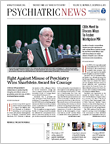Novartis Issues Recall on ADHD Medication
Novartis has issued a voluntary recall of 10,000 bottles of the attention-deficit/hyperactivity disorder (ADHD) medication dexmethylphenidate HCl-Extended-Release manufactured by Alkermes Plc. in Gainsville, Ga.
According to a report by the Food and Drug Administration (FDA), the product is being recalled due to an “out of specification (above specification) result obtained at six-hour dissolution time point during the 12-month stability testing.” The recall includes the 100-tablet bottles from lot number F0002 with an expiration date of December 2016.
Once-Daily ADHD Medication Receives FDA Approval
Tris Pharma Inc. announced that the FDA has approved Dyanavel XR (amphetamine) extended-release oral suspension for the treatment of ADHD in children 6 years and older. The medication is the first once-daily, extended-release, amphetamine-based oral liquid approved for the treatment of ADHD in children.
The approval was based on a phase 3 study of 108 children aged 6 to 12 with ADHD. Children who took Dyanavel XR demonstrated improvements in the Swanson, Kotkin, Agler, M-Flynn, and Pelham (SKAMP)-Combined score—a measure intended to assess functional impairment related to ADHD—at four hours post-dosing. Dyanavel XR also met key secondary endpoints by demonstrating an onset of clinical effect at one hour that persisted through 13 hours post-dosing compared with placebo. The most common adverse effects included nose bleeds, allergic rhinitis, and upper abdominal pain.
Trial to Evaluate TMS For Youth With MDD
Neuronetics Inc., developers of Neurostar Transcranial Magnetic Stimulation (TMS) Therapy , has started enrolling adolescents for the first randomized, controlled clinical trial evaluating the acute and long-term effectiveness of TMS therapy in adolescent patients aged 12 to 21 with major depressive disorder (MDD).
The trial will evaluate the safety and efficacy of NeuroStar TMS therapy in approximately 100 adolescent patients in study sites across the United States and Canada. Participants will receive TMS repeatedly over six weeks with follow-up after six months.
NeuroStar TMS therapy delivers magnetic field pulses to the brain, which activates brain structures known to be involved in mood regulation. The FDA approved the system in 2008 for MDD in adults.
Chicago Files Second Suit Against Opioid Painkiller Manufacturers
The city of Chicago has refiled lawsuits against six drugmakers—Purdue Pharma, Teva Pharmaceutical Industries, Janssen Pharmaceutica, Depomed, Endo Health Solutions, and Allergan—whom it claims overstated the benefits of opioid painkillers to treat chronic pain while downplaying the drugs’ potential to be abused.
The lawsuit states that the drugmakers knew that “opioids were addictive and subject to abuse, particularly when used long term for chronic non-cancer pain” and that such products should be used as a last resort. Instead, the city alleges that the drugmakers downplayed such risks and recruited clinicians to give scripted talks about the benefits of the painkillers.
The lawsuit claims that such action led to increased abuse, addiction, and overdoses, and as a result, the city now ranks first in the nation in emergency room visits for heroin overdoses. The city wants drugmakers to cover the costs associated with opioid abuse in Chicago—an amount FiercePharma estimates could reach into the hundreds of millions of dollars.
Postmarketing Data Show More Serious Side Effects For Certain Alzheimer’s Drugs
Patients taking Exelon patch (rivastigmine tartrate) by Novartis International AG, Namenda (memantine HCl) by Allegran Inc., and Aricept (donepezil) by Eisai Co. Ltd. may experience more serious side effects than those taking other Alzheimer’s drugs, according to an analysis of postmarketing data by the health care informatics firm Advera Health Analytics.
The firm analyzed postmarketing reports and data on Alzheimer’s medications developed by different manufacturers using a reporting odds ratio (ROR) that compares the number of side effects reported for a particular medication with how many side effects are expected. An ROR of 1.5 and above indicates a potential safety issue.
Exelon patch was associated with 335 cases of hallucination with an ROR of 8.68. The medication also was associated with 23 cases of femoral neck fracture with an ROR of 8.25.
Namenda was linked to 147 cases of hallucination with an ROR of 6.35 and 95 cases of hypersomnia with an ROR of 12.87.
Aricept was associated with 123 cases of hallucination with an ROR of 5.31 and 313 cases of syncope (loss of consciousness) with an ROR of 8.19. All medications were associated with agitation with RORs ranging from 5.83 to 8.90 and nonspecific blood pressure disorders with RORs ranging from 2.34 to 5.36.
The report can be accessed
here. ■
